The content of the article
There are a lot of recipes for condiments and snacks from horseradish, they all have a specific spicy taste that a pregnant woman can also attract. What effect the plant will have on the body depends on the amount of food eaten, as well as the presence of contraindications, including not only a number of diseases, but also a difficult pregnancy. Nevertheless, with proper use of this plant can be obtained and benefits.
Useful properties of horseradish during pregnancy
The value of horseradish lies in its composition, used not only in cooking, but also in cosmetology, therapeutic and prophylactic purposes. The plant contains many unique natural compounds, from the main can be identified:
- Vitamins, including group B, E, PP, C, and in horseradish it is several times more than in lemon.
- Micro and macro elements. There is potassium, magnesium, calcium, phosphorus, sodium sulfur, and other elements, but in the smallest quantity.
- Organic acids.
- Essential oils, in particular, allylgorchichnoe, and resin, creating a sharp, peculiar smell of the plant, especially the root.
- Protein, starch, carbohydrates, phytoncides, enzymes.
The natural composition is quite diverse, when properly applied can be a useful addition to food or a therapeutic agent.
What is the use of horseradish during pregnancy
The main condition for the use of horseradish during pregnancy - the minimum dosage, no contraindications. Only in this case, it is possible with the help of a plant to obtain certain benefits for the body without harming the health of the future mother and baby. Mainly the roots of the plant are used as a drug or prophylactic against viral, catarrhal diseases.
Proper administration of horseradish allows you to have the following beneficial effects on the body:
- Antibacterial effect. The plant contains natural antibiotics, antiseptics. This allows you to successfully cope with colds and acute respiratory viral infections, stomatitis, infections of the oral cavity and other diseases associated with the reproduction of bacteria.
- Improvement of blood formation and general condition of the circulatory system, including due to folic acid, vitamin E.
- Prevention of constipation, gas accumulation, natural stimulation of the intestines.
- Restorative effect aimed at improving immunity, the protective functions of the body.
- Prevention of anemia, low hemoglobin, mainly due to the iron content, which is best absorbed in conjunction with vitamin C.
- Maintaining a normal level of metabolic processes, which prevents weight gain, swelling.
- Strengthening the walls of blood vessels.
- Normalization of pressure, although there is a risk of overstating it.
The beneficial properties of horseradish should be used with restrictions, because despite the unique natural composition, there is a risk of unpleasant health situations, which is especially dangerous for a pregnant woman.
Harm of horseradish during pregnancy
To eliminate health problems not only for the future mother, but also for the developing fetus, it is better to limit the use of horseradish to a minimum. The plant contains active compounds, essential oils and resins that can adversely affect the work of some internal organs, and in the second trimester provoke problems with gestation.Naturally, the obvious effect on the body occurs with regular use of horseradish or with a portion eaten exceeding the average rate.
Possible harm from horseradish and contraindications
If the pregnancy is difficult, there are chronic diseases of internal organs, it is better to limit the administration of horseradish in any form. Expectant mothers should exclude contraindications, which include the following phenomena:
- Diseases of the digestive tract, digestion, including an ulcer at any stage, gastritis, cholecystitis, and so on.
- Renal dysfunction, urolithiasis.
- Increased pressure, cardiac arrhythmias, disorders of the cardiovascular system.
- In addition to the main contraindications, there is a chance of individual intolerance, since the active compounds of oils and resins that can cause allergies are radically contained.
For pregnant women, proper fluid intake, timely removal of it from the body is important, and excessive use of horseradish can disrupt this balance. The pungent taste provokes thirst, the kidneys can not cope with the increased amount of water and this will lead to undesirable edema.
Constant use of horseradish can cause mucosal disorders in the mouth, burns, small wounds, which can become infected and develop inflammation.
According to some obstetricians, horseradish is better to completely eliminate when threatened with miscarriage, as well as in the later periods to prevent preterm birth.
How to do no harm if you really want horseradish
If horseradish is planned to be used for medicinal purposes, then it is advisable for pregnant women to choose the option of special medicines developed for expectant mothers or to choose other traditional methods. There is a way to use the plant without ingestion, for example, for colds, it is useful and safe to just inhale the cut root.
As seasoning horseradish should be consumed in a minimum amount, especially if it is prepared independently from a fresh plant. Products presented with the addition of horseradish contain less useful compounds, but they also underestimate the concentration of elements that can cause a negative reaction of the body. For finished products, it is important to pay attention to the composition, so that hazardous chemical additives do not enter the body along with the aromatic seasoning.
Each future mother determines their own diet, but one should not forget what the more correct it is, the greater the benefits for the baby and the mother herself.
Video: healing properties of horseradish

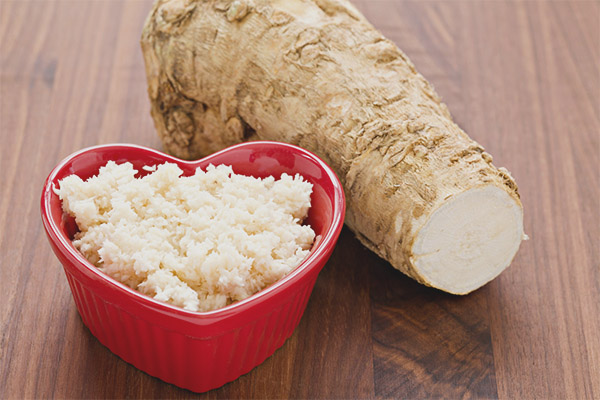
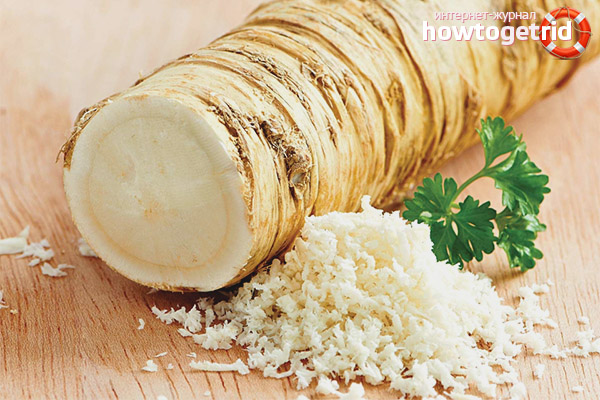

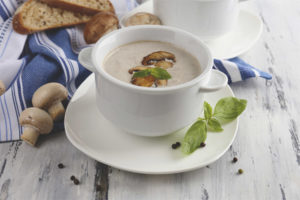
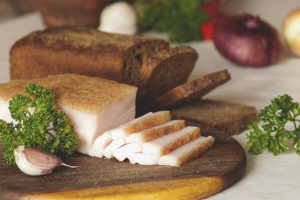
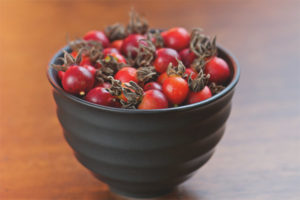
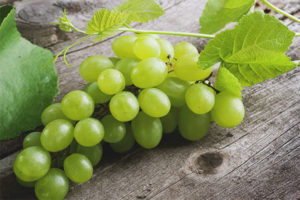
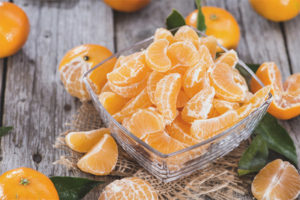
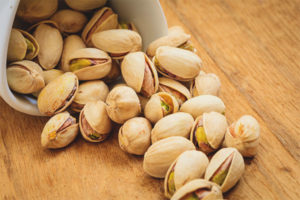

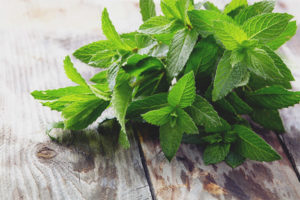
To send